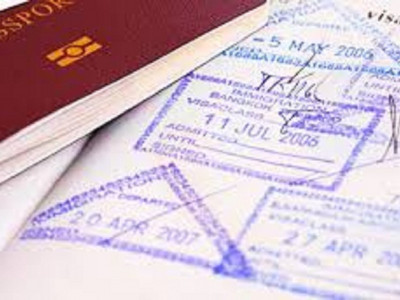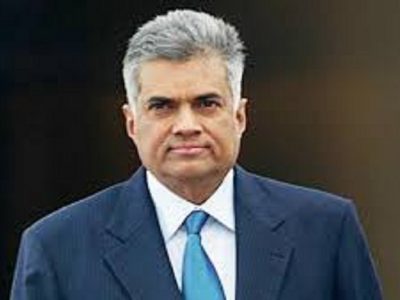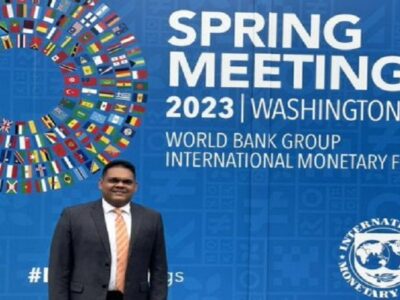(LANKAPUVATH | COLOMBO) – The written update on Sri Lanka was presented at the 54th Session of the Human Rights Council that commenced on 11 September 2023 in Geneva by the Deputy High Commissioner for Human Rights Nada al-Nashif.
Delivering Sri Lanka´s statement as the country concerned, Permanent Representative of Sri Lanka to the United Nations in Geneva, Ambassador Himalee Arunatilaka at the outset reiterated that Resolutions 46/1 and 51/1 were adopted by a divided vote in the Council where the majority of the Member States either opposed or abstained from voting on these Resolutions, in fundamental disagreement with its unacceptable content, in particular the so-called evidence gathering mechanism, the establishment of which is unprecedented.
Sri Lanka rejected the written update by the High Commissioner for Human Rights titled ‘Situation of Human Rights in Sri Lanka’ together with its conclusions and recommendations, while reaffirming its commitment to pursuing tangible progress through domestic institutions.
While raising concerns regarding the content of the written update which does not reflect the actual ground situation in the country, Sri Lanka stated that the economic, social and financial stabilization achieved in the past year has been appreciated and acknowledged domestically and externally by those who have expertise.
Sri Lanka regretted that the OHCHR has also chosen to ignore the democratic resilience of the country in the past year and strongly objected to the written update pronouncing on policy matters that are essentially domestic for any sovereign country and outside the framework of the Council, which is unhelpful. Sri Lanka rejected all Conclusions and Recommendations including references to targeted sanctions based on incorrect and unsubstantiated sources contravening the principles of natural justice and the principles of universality, impartiality, objectivity and non-selectivity.
Ambassador Arunatilaka reaffirmed that Sri Lanka will continue to engage constructively with other mechanisms of the Council, in keeping with our close engagement with the international community and the Council in other areas of its work.
46 countries spoke during the Interactive Dialogue that followed the presentation of the written update. Many acknowledged the economic recovery measures and progress achieved by the domestic institutions on reconciliation and Sri Lanka’s continued constructive engagement with the Human Rights Council.
Making a strong statement against the OHCHR’s ‘accountability mechanism’, the Philippines called it ‘an expensive mandate worth 10 million US dollars to support a Geneva based team with an open-ended work timeframe’, that ´runs parallel to and divorced from functioning domestic processes´.
Syria stated that the Sri Lanka accountability project was initiated without the consent of, nor consultation with Sri Lanka, and affirmed that such acts are contrary to the Council’s founding principles of impartiality, objectivity and non-selectivity and contravened the mandate of the Council.
Venezuela rejected the ‘so-called Sri Lanka accountability project’ which is an interventionist mechanism that ignored the internal process taking place in Sri Lanka and while the progress made by Sri Lanka in upholding human rights since restoring peace in 2009 has not been given a true value by the Council.
Pakistan expressed concerns over the imposition of external accountability measures that are inconsistent with the provisions of the UN charter and UNGA Resolution 60/251 and the IB package.
Cuba stated that punitive mechanisms only give rise to politicization and proliferation of double standards and do not contribute in any way to the promotion and protection of human rights.
China extended support to Sri Lanka in safeguarding national sovereignty, independence, social stability and promoting economic development and stated that Resolution 51/1 does not follow the principles of fairness and objectivity and non-selectivity and it did not have the approval of the country concerned.
Lao PDR was also of the view that ‘the imposition of country specific resolutions without the consent of the concerned country are counterproductive and against the principle of impartiality, objectivity and not selectivity’.
Belarus said it was ‘concerned by the ongoing practice of pressurizing Sri Lankan authorities by foisting on them nonconsensual mechanisms’, and noted Sri Lanka’s continuing cooperation with a number of UN human rights mechanisms.
Eritrea mentioned that ‘mechanisms which lack the consent of the country concerned are counterproductive and going against the principle of genuine dialogue and cooperation in human rights.
Türkiye recognized the significant reforms by Sri Lanka in the economic sector and also in the areas of governance, the legal system and social welfare, including the steps taken to advance the reconciliation process, establishment of the constitutional council, adoption of the new anti-corruption law and developing anti- terrorism legislation, promotion of women’s rights and strengthening of accountability measures.
Oman, speaking on behalf of the Gulf Cooperation Council noted in particular the all-party conferences convened in December 2022 and January 2023 to promote reconciliation and accountability.
Maldives mentioned that ‘the support and cooperation of the international community [is] vital for Sri Lanka to overcome its current social and economic challenges’.
The Russian Federation considered the practice of artificially stirring up excitement around the human rights situation in Sri Lanka, to be counterproductive.
Nepal appreciated the ´continuous engagement of Sri Lanka with the Human Rights Council, OHCHR and other human rights mechanisms´ and welcomed the positive initiatives, including ´Aswesuma´, launch of Sri Lanka National SDG dashboard, and passing of the the 21st amendment to the Constitution in October 2022.
Japan acknowledged ‘the amendment to the prevention of Terrorism Act as an important initial step’. Japan also expressed support to ‘Sri Lanka’s efforts to establish transnational justice mechanisms including the Truth and Reconciliation Commission’ and added that Japan would ´continue to support Sri Lanka on both the human rights and the economic fronts´.
Norway, speaking on behalf of the Nordic Baltic countries welcomed ‘the Government’s efforts to set up a Truth- seeking mechanism’.
Nigeria applauded the Government of Sri Lanka for its ‘resilience and determination to improve the socio-economic well-being of its people, as well as the initiatives put in place to subvert the adverse effects of the challenges encountered in the recent past.’
Uganda said it ‘specifically welcomes the efforts of the Office of the Missing Persons in helping families and victims trace their loved ones and find closure through reparations’.
Yemen commended the ‘positive cooperation shown by the Government of Sri Lanka´ and stressed the ‘importance of cooperation and coordination with the concerned country’.
Burundi noted that ‘Sri Lanka has managed to provide the stability of its democratic institutions’, and reiterated ‘the principles of sovereign equality of respect for territorial integrity and non-interference as enshrined in the UN charter should guide the work of this Council’.
India said that ‘as a close neighbour and friend of Sri Lanka, India has consistently supported Sri Lanka ‘s efforts towards the relief, rehabilitation, resettlement and reconstruction process in Sri Lanka since 2009’.
Nicaragua reiterated the need for respect for the principle of equality and the principles in the United Nations Charter, namely not to interfere in matters that are under the domestic jurisdiction of states.
Vietnam acknowledged Sri Lanka’s ‘efforts and initiatives in addressing issues of reconciliation and accountability such as the establishment of the Cabinet Sub Committee on reconciliation, and the Office for Overseas Sri Lankans’.
Kazakhstan expressed support to ‘the reforms of Sri Lanka in the economic sectors, legal system and social welfare, as well as the efforts aimed at protecting and promoting human rights and freedoms.’
Kyrgyzstan said ‘Sri Lanka’s economic crisis has been aggravated by external factors including the global pandemic and public debt’. Kyrgyzstan added that many developing countries faced the same foreign debt issues which have been described by the UN Secretary General as ‘a development disaster, fueled by a crushing debt crisis.’
Azerbaijan emphasized ‘all matters falling within the domestic jurisdiction of UN member states including that of Sri Lanka must be addressed through dialogue and cooperation’.
Algeria underlined that the report addressed ‘very complex issues that are the purview of the country concerned´.
Iran said the HRC should promote human rights ‘through dialogue and international cooperation based on principle of non-selectivity, impartiality and objectivity’ and ‘refrain from politicization and political prejudice’.
Egypt also emphasized the importance of objectivity and non-selectivity when reviewing matters pertaining to human rights, as well as avoiding politicization of human rights and non-interference in the domestic affairs of a country.
Cambodia commended Sri Lanka’s endeavours in promoting gender equality and the role of Office for Reparations in contribution to livelihood support.
The European Union recognized ‘the challenges Sri Lanka has been facing due to the economic and financial crisis throughout last year’, and ´the positive course of action over the past months, leading the country towards economic stabilisation´. EU also took note of ‘plans for reconciliation mechanisms, and the President’s dialogue with Tamil political parties’, and encouraged the Government to ´remain engaged with the UN and partners´.
The United Kingdom welcomed Sri Lanka’s initial commitments to implement devolution in line with the Constitution, to address land issues and to advance governance legislation.
Switzerland commended the efforts made by the Government to bring about reconciliation and to undertake reform in order to strengthen the rule of law and said that Switzerland stands ready to facilitate dialogue platforms as part of the reconciliation process in Sri Lanka.
Canada welcomed Sri Lanka ‘s positive engagement with the UPR process and acknowledged that Sri Lanka is developing legislation to replace the PTA.
New Zealand welcomed Sri Lanka´s ‘progress in stabilizing its economy following the country’s acute economic crisis’, and acknowledged ´recent focus on reconciliation including the proposed establishment of a national unity and reconciliation Commission´.
Germany recognized ‘the burden the people of Sri Lanka are facing following the economic crisis’, and commended ´recent initiatives for dialogue´. Germany further took note of ´the President’s initiative to form a Truth-Finding Mechanism’.
France welcomed what the Government has done to restore the economy.
The United States recognized that ‘Sri Lanka strengthened reforms including anti-corruption legislation’ and also welcomed the release on bail of over 100 individuals held without trial and on the Prevention of Terrorism Act.
Montenegro positively noted ‘some encouraging developments and trends´ in addressing the impact of the economic and financial crisis of 2022. Montenegro noted as ´exemplary´ the ´dialogue with Tamil political parties´ initiated by the President, and commitment to settle devolution and land matters.
Malawi commended Sri Lanka´s cooperation during the compilation of the High Commissioner´s report and commended the ´positive legal reforms that the government of Sri Lanka has implemented despite the challenges faced´.
Australia welcomed ‘Sri Lanka’s commitment to replace the prevention of Terrorism Act´ and encouraged ´broad stakeholder consultations to develop a replacement law’.
The Sri Lanka delegation was led by the Permanent Representative of Sri Lanka to the UN, and comprised officers attached to the Permanent Mission in Geneva.




